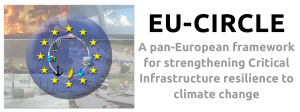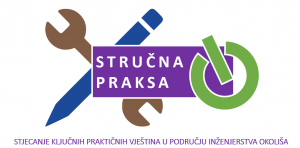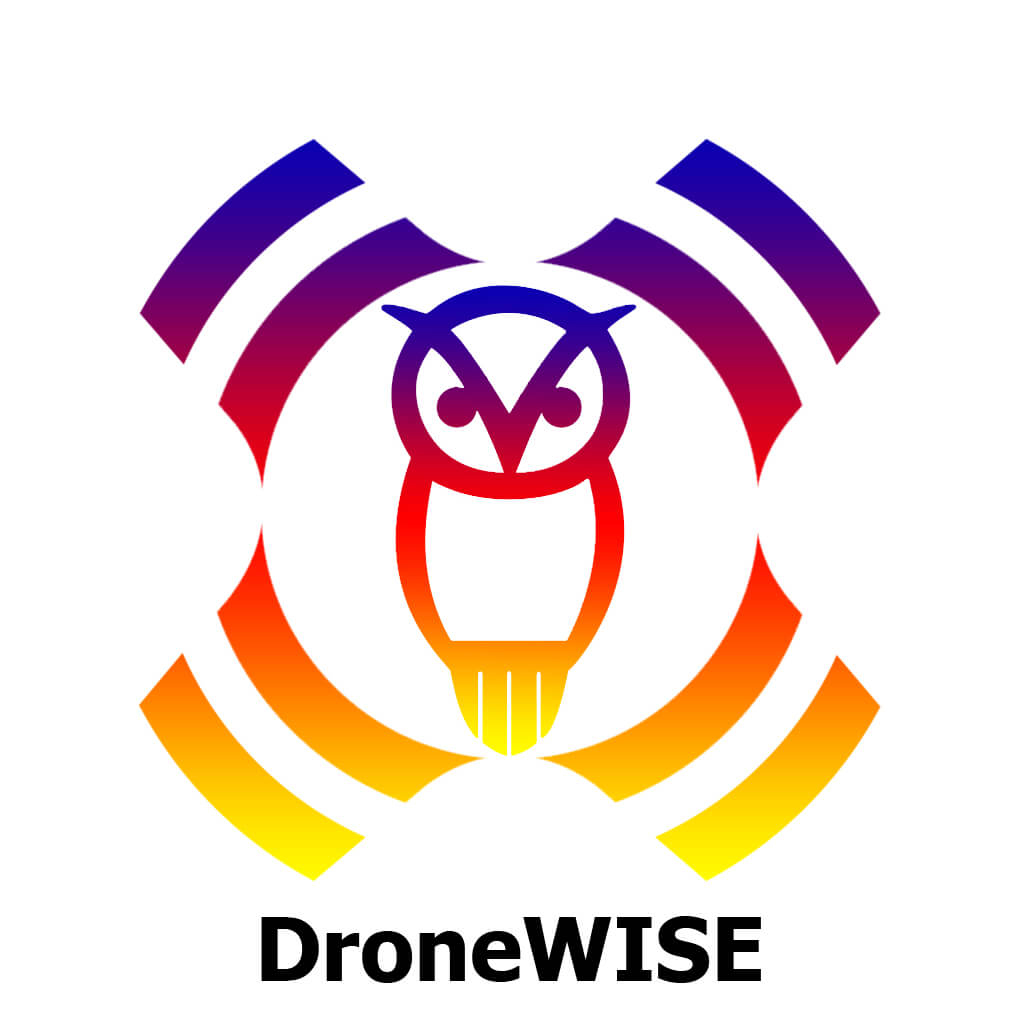Ongoing projects
Learn4Green
Within this Erasmus+ project, international multidisciplinary modules in the field of environmental protection and sustainability will be designed and developed, to be delivered online. The modules will be integrated into undergraduate study programmes at partner institutions, while also being available independently as lifelong learning courses. The coordinator of the €250,000 project is Brussels Brabant University College, and the partner consortium includes Tartu Health Care College from Estonia, the Polytechnic University of Coimbra from Portugal, and the University of Applied Sciences Velika Gorica. Given its extensive experience in crisis management, the contribution of the University of Applied Sciences Velika Gorica will be particularly valuable in topics related to contemporary crises. The project started on 1 September 2023 and is scheduled to run for 36 months, until 31 August 2026. The kick-off conference was held on 10 November 2023 in Brussels, where the project was presented. The first lectures on the energy crisis were delivered online between 27 and 31 October 2023, with the participation of 45 students and 13 lecturers from the partner institutions, demonstrating the relevance of the selected topics.
AdRIAtic-ionian Nature based solutioNs enhAncement – ARIANNA
The University of Applied Sciences Velika Gorica is participating as a partner in the project “AdRIAtic-ionian Nature based solutioNs enhancement (ARIANNA)”, funded under the Interreg IPA Adrion Programme. The project coordinator is ASSET – Agenzia regionale Strategica per lo Sviluppo Ecosostenibile del Territorio from Italy, and alongside the University of Applied Sciences Velika Gorica, six additional partners are involved in the implementation. The project officially started on 1 September 2024 and will run until 31 August 2027, with a total budget of nearly €1.5 million. The objective of the project is to contribute to preventing the risks of natural disasters, particularly floods, which increasingly affect ecological systems. The key activities of the University of Applied Sciences Velika Gorica include contributing to the development of a strategy aimed at increasing the resilience of the Adriatic-Ionian region to climate change and natural disasters, strengthening stakeholder competences for flood risk response and raising community awareness of climate change resilience, participating in the implementation of pilot actions, and facilitating the exchange of knowledge and experiences among project stakeholders. The ARIANNA project is dedicated to reducing the risks of natural disasters, especially floods, by unlocking the untapped potential of Nature-Based Solutions (NBS). Floods are posing a growing threat to the rich but fragile ecosystems within the programme area, while NBS offer a promising pathway forward. More than mere preservation, NBS harness the “power of nature” to provide ecological, social, and economic benefits while enhancing ecosystem resilience. Through this approach, the ARIANNA project will develop a joint transnational climate resilience strategy, which will provide an integrated framework containing transnational guidelines and actions rooted in NBS and tested through specific pilot initiatives; transnational NBS pilot actions, which represent the practical application of the joint strategy and consist of interventions to maintain hydrological balance, improve infiltration and evapotranspiration while mitigating surface runoff and the effects of urban heat islands; multi-risk vulnerability tools and NBS practices, which address the interplay of earthquake risks, urbanization and flood defense infrastructure and support strategic planning at pilot sites; improved firefighting capacity for flood response, which integrates training, specialized equipment and coordination mechanisms to ensure an effective response to floods, monitored pilots and culminating in a transnational joint position paper as a strategic tool for integrating NBS into broader disaster prevention frameworks; and the ARIANNA NBS Cooperation Network, supported by a Memorandum of Understanding (MoU) and strengthened through capacity-building activities to raise awareness of NBS. A digital knowledge hub will serve as a repository of resources and a permanent forum for exchanging best practices, increasing the dissemination of project results, and ensuring continuity.
Green optics – a research project on the impact of ophthalmic optical aids on the environment
The project is being implemented within the cycle of joint scientific research projects between the Republic of Croatia and the People’s Republic of China for the period 2024–2026, and will be carried out both in China and in Croatia. The partnership involves the University of Applied Sciences Velika Gorica and Tongji University (Shanghai), founded in 1907 and ranked among the top universities in China. The “Green Optics” project seeks to demonstrate that even seemingly small amounts of plastic waste generated in each household can cause global environmental problems if not properly managed. This project is unique for several reasons. For the first time in Croatia, a type of waste that has long been overlooked in waste management systems is being systematically collected. It originated as part of the Optometry study programme at the University of Applied Sciences Velika Gorica, which equips students with a broad spectrum of skills and prepares them for careers that will one day include socially responsible action with a strong focus on environmental issues. We are aware that the increasing popularity of contact lenses as a method for correcting refractive errors goes hand in hand with the continuous growth of polymer waste, which accumulates daily. In the past, polymer waste from the optical industry was mainly disposed of in landfills, an ecologically and economically unacceptable practice that is now largely avoided. Today, various recycling methods are used wherever possible. Recycling not only promotes sustainability by preventing waste generation, but also helps reduce the consumption of non-renewable resources, particularly crude oil, from which the raw components (monomers) for polymer synthesis are derived. For recycling to be possible, materials must be properly collected and sorted, thus initiating the circular economy cycle. It is generally assumed that the amount of polymer waste from contact lenses is relatively small compared to other polymer waste, but the question remains as to its actual volume. According to Eurolens, a wearer of daily disposable contact lenses uses an average of about 360 pairs per year. A monthly contact lens wearer consumes 12 pairs of lenses annually, along with their packaging, as well as 12 bottles of solution for cleaning and storing lenses. There are more than 125 million contact lens users worldwide, representing almost 1.4% of the global population. On average, each contact lens wearer generates nearly 1 kg of pure polymer waste annually. In Croatia, around 60,000 people wear contact lenses. If all 60,000 wore lenses every day, they would produce 57 tonnes of polymer waste per year, released directly into the environment. It is important to stress that this polymer material, due to its structure, quickly dries and crumbles when exposed to air, turning into microplastics. According to previous research carried out within this project (a comparative analysis of Croatia and Portugal), this type of waste is typically disposed of in mixed household waste, in nature, or into wastewater. The data presented in this application are not known in China, which makes this research and the continuation of the project in cooperation with the Chinese partner of great significance for both countries.
Implemented projects
SILVANUS – Integrated Technological and Information Platform for Wildfire Management
This project, funded under the Horizon 2020 programme, developed an innovative platform for forest fire management aimed at prevention as well as faster and more effective suppression of wildfires. The project coordinator is Università Telematica Pegaso from Italy, and the University of Applied Sciences Velika Gorica, together with 48 other partners, forms a strong international consortium representing 15 EU Member States, as well as Indonesia, Australia and Brazil. Through the project, innovative pilot scenarios were implemented with detailed descriptions of locations, activities and outcomes, while the diverse profile of interdisciplinary partners enabled the collection of extensive and valuable information, which was integrated into the platform. The European Commission recognised the potential of the project proposal and approved funding of €19,902,190.26 for the consortium, while the total estimated value of the project amounted to €24,186,845.00. The project officially started on 1 October 2021 and lasted for 42 months. In addition to developing advanced software solutions, the project established a synergy between environmental sciences, technology experts and social sciences with the goal of improving the capacity of national and regional authorities to monitor forest resources. To achieve this goal, numerous activities were implemented across 10 project elements, including biodiversity assessments, the establishment of more accurate fire risk indicators, and awareness-raising initiatives among citizens. The University of Applied Sciences Velika Gorica contributed to these activities as the leading higher education institution in Croatia and the region in the field of crisis management and emergency response.
The objective of the project “Velika Gorica Solar City – COUNTDOWN” was to utilise solar energy for electricity production in public buildings across the City of Velika Gorica, thereby promoting the use of renewable energy sources and initiating the city’s transition towards carbon neutrality by raising citizens’ awareness of the importance of investing in renewable energy. Solar power plants for electricity generation were installed on 22 public buildings within the administrative area of the City of Velika Gorica – including primary schools, kindergartens, community centres, sports facilities and others – ensuring equal representation across both central and rural areas of the city. Within the project, special emphasis was placed on promoting renewable energy among young citizens (kindergarten and school-age children), enabling them to connect theory with practice through the buildings they use daily. The implementation of this project made use of the potential of the majority of city-owned buildings with suitably oriented roof surfaces and structurally adequate rooftops. The total installed capacity of all solar plants is 588.4 kWp, with an expected reduction in electricity consumption from the grid amounting to 604,452 kWh. The project reduced CO2 emissions by 95.9 t/year and mitigated the risk of rising unit electricity prices in the future. The electricity generated from solar power plants covers 37% of the energy needs of the buildings included in the project. The project was led by the City of Velika Gorica, with partners including the University of Applied Sciences Velika Gorica, the Tourist Board of Velika Gorica and the Energy Farm International Foundation (EFIF) from Norway. The total project value was €654,128.77, and it was implemented from 24 May 2022 to 30 April 2024. The project “Velika Gorica Solar City – COUNTDOWN” was co-financed by Iceland, Liechtenstein and Norway through the European Economic Area (EEA) Financial Mechanism 2014–2021 under the programme “Energy and Climate Change”.
GET FAR
The aviation industry holds exceptional importance both globally and in Europe, as it plays an indispensable role in our daily and social lives. For sustainable aviation, there is no doubt that qualified maintenance is essential. To fulfil such a mission, educational institutions need to understand the needs of the industry and accordingly align their education and training. With the outcomes of the Erasmus+ project GET FAR (Developing a Novel and Digital Curriculum for Aircraft Maintenance Practical Training), educational institutions will implement a curriculum created in close collaboration with the industry. The European Commission regulates organisations providing training for aircraft maintenance engineers through Part 147 within the framework of approved procedures. This approval includes four components, two of which are practical training and practical assessment. Practical training and its assessment are of vital importance for AME candidates to acquire the high level of skills that maintenance organisations often require for aircraft servicing. The project partners are the University of Applied Sciences Velika Gorica, myTECHNIC, Erciyes University, and EU Wings. The project lasted from 28 February 2022 to 27 February 2025.
Acquisition of key practical skills in the field of environmental engineering
By signing the Grant Agreement, the University of Applied Sciences Velika Gorica became a partner on 9 March 2020 in the EU project Acquisition of key practical skills in the field of environmental engineering. The project, with a total value of HRK 3,974,834.79, is led by the Faculty of Geotechnical Engineering at the University of Zagreb, based in Varaždin, and the partner consortium, in addition to the University of Applied Sciences Velika Gorica, includes the Institute for Development and International Relations, the Croatian Society of Engineering Technicians, the Green Energy Cooperative, and the Alumni Association of the Faculty of Geotechnical Engineering at the University of Zagreb. The project aimed to equip students with key knowledge and competencies during their studies through the development of practical training in environmental engineering, which also included enhancing the skills of academic and non-academic staff at higher education institutions and developing partnerships with employers. One of the most significant outcomes of the project is the development of an institutional system for practical training with an accompanying online system for planning and monitoring its quality, as well as a positive impact on employability in the field of environmental protection, with a focus on applying innovative solutions in the economy. Regarding the contribution of the University of Applied Sciences Velika Gorica, a total of 144 UASVG students had the opportunity to participate in practical training activities at the Faculty of Geotechnical Engineering and gain hands-on experience with advanced equipment acquired within the project. The UASVG’s Career and Psychological Support Centre also actively participated in the project by conducting three engaging workshops on learning strategies to facilitate students’ academic adjustment. The project lasted three years, until 9 March 2023, and was fully funded by the European Social Fund.
DroneWISE
The coordinator of the European project DroneWISE was the University of Applied Sciences for Public Administration in Bavaria (HföD) from Germany, and the consortium, alongside the University of Applied Sciences Velika Gorica, included Saher Europe OU based in Estonia, the European Institute Foundation from Bulgaria, the Center for Security Studies (KEMEA) from Greece, and Rinigard d.o.o. from Croatia. Over the course of 28 months, the project developed a series of practical measures to prepare and enhance institutional responses to terrorist attacks using unmanned aerial vehicles (UAVs) in public spaces. The project was submitted under the ISFP-2019-AG-PROTECT call of the Internal Security Fund, and the European Commission approved 90% of the total project value, amounting to €1,190,718.00. Given its expertise and extensive academic experience in crisis management and emergency response, the University of Applied Sciences Velika Gorica played a particularly important role in analyzing the threat posed by UAVs in public spaces and in evaluating the pilot training programme for crisis response to UAV attacks. The combination of all practical measures developed within the project significantly improved the coordinated institutional response to crises, thereby contributing to the protection of public spaces against UAV attacks. The DroneWISE project developed a command, control, and coordination strategy for counter-UAV operations for first responders, supported by command-level counter-UAV training for all first-response agencies, including tactical options and decision-making frameworks, all reinforced by the CUAV Command Training Manual, readily accessible via the CUAV online training portal. DroneWISE recognized that the illegal use of UAVs has become a serious security issue worldwide, as terrorists, activists, and criminals adopt drone technology and develop new, creative, and sophisticated ways to commit crimes, carry out terrorism, and infringe upon citizens’ privacy. The adoption of UAVs as a tactical attack option by terrorists, intended to cause mass disruption, damage economic stability, and directly threaten the security of the EU and its citizens, underscores the clear and present danger of modern terrorism. Highlighting this emerging threat, in August 2019, EU Commissioner for Security Julian King warned that drones could be used for terrorist acts, stating: “Drones are becoming more powerful and intelligent, making them increasingly attractive for legitimate use, but also for hostile acts.” This warning followed the release of a classified report in December 2018 by the French Anti-Terrorism Unit (UCLAT) to the country’s Special Committee on Terrorism, which cautioned about “a possible terrorist attack on a football stadium using a UAV potentially equipped with biological warfare agents.” To address these current vulnerabilities, DroneWISE developed a holistic command, control, and coordination strategy for first-response agencies, underpinned by evidence-based training for counter-terrorist protection of public spaces. DroneWISE serves to enhance the preparedness of first-response agencies and improve coordination of their efforts, significantly increasing the protection of public spaces and the coordinated response to terrorist attacks involving UAVs.
KOZMOK – crisis management, optometry, maintenance of aircraft and motor vehicles – qualifications framework
The project was implemented by the University of Applied Sciences Velika Gorica as the lead partner, in partnership with the Croatian Firefighting Association and Ghetaldus Optika d.d. The aim of the project was to enhance the study programmes at the University of Applied Sciences Velika Gorica based on occupational and qualification standards, i.e., by applying the Croatian Qualifications Framework (CQF) to contribute to the development of high-quality study programmes aligned with labour market needs, as well as personal, social, and economic development and social inclusion. In addition to improving the study programmes, the project enhanced the quality of teaching at the University and equipped the optometry laboratory, thereby enabling the University of Applied Sciences Velika Gorica to contribute to increasing the quality and relevance of the higher education system in Croatia. Study programmes must be continuously adapted to the requirements of quality education and the labour market in accordance with changes in the broader social context. By introducing CQF mechanisms, the main tools for ensuring and improving the quality of study programmes were defined, highlighting the need to revise their structures, learning outcomes, and delivery methods in order to enhance the quality, relevance, and efficiency of higher education programmes, and to increase student enrolment, particularly from disadvantaged groups. Through this project, by developing occupational and qualification standards and improving study programmes in accordance with these standards, the University of Applied Sciences Velika Gorica seeks to contribute to addressing the aforementioned challenges, which is also the main purpose of the project. The project, with a total value of HRK 3,832,319.35, was fully funded by the European Social Fund and was implemented from 22 March 2019 to 22 March 2022.
Implementation of the CQF in professional computer science studies
The University of Applied Sciences Velika Gorica participated as a project partner in the project “Implementation of the Croatian Qualifications Framework (CQF) in Professional Computer Science Studies”. The project was led by Algebra University, and the project consortium, in addition to UASVG included the Technical University of Applied Sciences of Zagreb, Međimurje University of Applied Sciences in Čakovec, the College of Management in Tourism and Informatics in Virovitica, the University of Applied Sciences in Bjelovar, the Faculty of Electrical Engineering, Computer Science and Information Technology Osijek, the Faculty of Electronics, Mechanical Engineering and Naval Architecture at the University of Split, Aspira College of Management and Design, the Croatian Employers’ Association (HUP), the College of Information Technology, and the Croatian Zagorje University College Krapina. The main objectives of the project were the development and creation of five occupational standards in the field of computing in accordance with the guidelines for developing occupational standards, as well as the development and creation of nine qualification standards obtained upon completion of professional computing studies, in line with the guidelines for developing qualification standards. To reach the European Union average of 3.7% of IT specialists in the workforce and to improve their employability across EU countries, it is necessary to quickly generate and employ an additional 6,000 IT professionals through education. The target groups of the project were eight higher education institutions offering computing programmes at the undergraduate and graduate levels, leading to the qualifications of baccalaureus in Computer Engineering and Master of Computer Engineering, as well as four higher education institutions offering programmes leading to the qualification of Bachelor of Information Technology, also accredited in the scientific field 2.09 Technical Sciences / Computing. The specific objective of this project was the enhancement and development of ten study programmes in the field of professional computing studies in accordance with CQF guidelines, through the development of five occupational standards and seven qualification standards, as well as the improvement of quality assurance procedures and teaching activities in these programmes. The project started on 22 March 2019 and lasted 36 months, until 22 March 2022. The total value of the project was HRK 3,836,901.74 and it was financed by the European Social Fund.
Specijalistički diplomski stručni studij optometrije – Specialist graduate professional study in optometry
The University of Applied Sciences Velika Gorica, as the project lead, together with Ambitio College as a partner, developed a new Specialist Graduate Professional Study in Optometry in English. By developing the curriculum of the new English-language study programme, the University of Applied Sciences Velika Gorica contributed to the internationalization of Croatian higher education and promoted an increase in incoming student mobility. The first target group, teaching staff, underwent training in teaching methods focused on learning outcomes that place students at the centre of the educational process, training in preparing scenarios for e-learning lesson design, and a two-month English language course, thereby modernizing their existing teaching competencies, strengthening human resources, and enhancing the institutional capacities of the University. The second target group, students of the Professional Study in Ophthalmic Optics, participated in the evaluation of the e-learning system in English. This strengthened their digital and language literacy skills, encouraged greater use of modern and innovative ICT-based learning methods, and helped them overcome concerns related to enrolling in and attending studies in English. The implementation of project activities also increased students’ competencies in the area of mobility, representing a long-term impact of the project on this target group. The project, valued at HRK 1,795,569.77, was implemented from 12 October 2019 to 12 December 2020 and was fully funded by the European Social Fund.
RECIPE
The RECIPE project (Resilience of Critical Infrastructure Protection in Europe) was implemented in the Republic of Croatia, the Republic of Serbia, and the Kingdom of Sweden, with partners including the State Administration for Protection and Rescue as coordinator, the University of Applied Sciences Velika Gorica, the Faculty of Security Studies at the University of Belgrade in Serbia, and the Swedish Civil Contingencies Agency. The project ran from 1 January 2015 to 30 June 2016. Critical infrastructures form the backbone of modern societal development, and insufficient or inadequate protection represents a challenge to security, the economy, and the stability of European countries and the European Union as a whole. Despite the efforts of the European Commission and individual member states, there is no uniform level of development or consensus on protection methods for critical infrastructures across the EU. The purpose of the RECIPE project was to establish a platform for the exchange of experiences and best practices among experts and countries at varying levels of critical infrastructure protection. This was achieved through enhancing knowledge sharing, experiences, and best practices; improving communication and cooperation between relevant public and private stakeholders; engaging the academic community more effectively; and strengthening scientific and research activities in the field of critical infrastructure risk management. Project activities included national panel discussions—two one-day panels in Zagreb and two in Belgrade—which resulted in national positions regarding current legislation and practices, their strengths and weaknesses, and potential improvements, including an analysis of regulations and practices in identifying and assessing interdependencies of critical infrastructures relative to Directive 2008/114/EC. Joint partner workshops enabled international participants to exchange experiences and good practices based on national positions formed during the panel discussions, ultimately resulting in Guidelines for better and more efficient critical infrastructure management. An international scientific conference consolidated the results and provided policy recommendations for critical infrastructure protection, emphasizing public-private partnerships, challenges and mechanisms for sharing sensitive information/data among critical infrastructure stakeholders, and laying the groundwork for national resilience centres. The key follow-up strategy focused on defining future collaboration formats and solutions for other needs within the critical infrastructure management system, such as training and capacity building. The main objectives and interests of the partners included developing applicable models for establishing public-private partnerships in critical infrastructure protection, setting up mechanisms for exchanging sensitive information/data among stakeholders, and creating prerequisites for developing national critical infrastructure centres. Project outcomes included facilitated knowledge and best practice exchange between EU member states and other countries; increased awareness and understanding of risks to critical infrastructures and disaster prevention; improved communication between stakeholders at national and international levels; strengthened mutual support and collaboration among relevant public and private partners; enhanced scientific and research activities in critical infrastructure risk management; development of Guidelines to establish optimal risk management systems in partner countries lacking such frameworks; increased resilience and protection levels of European critical infrastructures through improved coordination and best practice exchange; establishment of a methodology for assessing critical infrastructure risks, considering cross-sectoral and cross-border dimensions; definition of further strategies for critical infrastructure protection in relevant countries; and identification of further education and training needs for public and private sector personnel (training programmes, expert exchanges, etc.).
 EU CIRCLE
EU CIRCLE
EU-CIRCLE (A Pan-European Framework for Strengthening Critical Infrastructure Resilience to Climate Change) is a research project funded through the Horizon 2020 programme, the European Union’s research and innovation programme, aimed at assessing the resilience of interconnected and interdependent critical infrastructures to climate change. The 36-month project (1 June 2015 – 31 May 2018), with a total budget of €7.3 million, brought together leading European research and academic institutions, government organizations, meteorological services, industry, and small and medium-sized enterprises in the fields of climatology and critical infrastructure protection. Given that European infrastructures have lifespans spanning several decades, it is crucial to acquire scientifically validated knowledge of potential climate impacts and extreme weather events as a sustainable guide for enhancing their resilience to future climate conditions. Considering multiple temporal scales, the main policy objective, as highlighted in the EU Adaptation Strategy (COM (2013) 216) and national programmes, is to transition to infrastructure networks that are resilient to current natural hazards and prepared for future climate changes. Furthermore, modern infrastructures are inherently interconnected and interdependent systems, so extreme events can easily trigger “cascading failures.” The EU-CIRCLE project therefore focuses on creating an innovative framework to support the resilience of interconnected European infrastructures under climate pressures. This framework is based on the development of a tested and validated Climate Infrastructure Resilience Platform aimed at: 1) assessing potential impacts arising from climatic and weather hazards, 2) providing monitoring through new resilience indicators, and 3) supporting cost-effective adaptation measures. By leveraging the vast body of existing knowledge from climate and weather research, the core of EU-CIRCLE is the creation of an open-source web platform that can be adapted to community needs, whether responding to short-term hazards and extreme events or designing the most effective long-term adaptation measures. The Croatian Meteorological and Hydrological Service (DHMZ) contributed by providing an overview of available meteorological and climate data, the capabilities of climate and forecast models, and their limitations at different spatial and temporal scales for assessing potential threats to critical infrastructure. Various types of climate information were analyzed, including GCMs, RCMs, statistical-dynamical downscaling, and local and regional predictive models for extreme weather events, in accordance with the requirements for critical infrastructure modelling.



